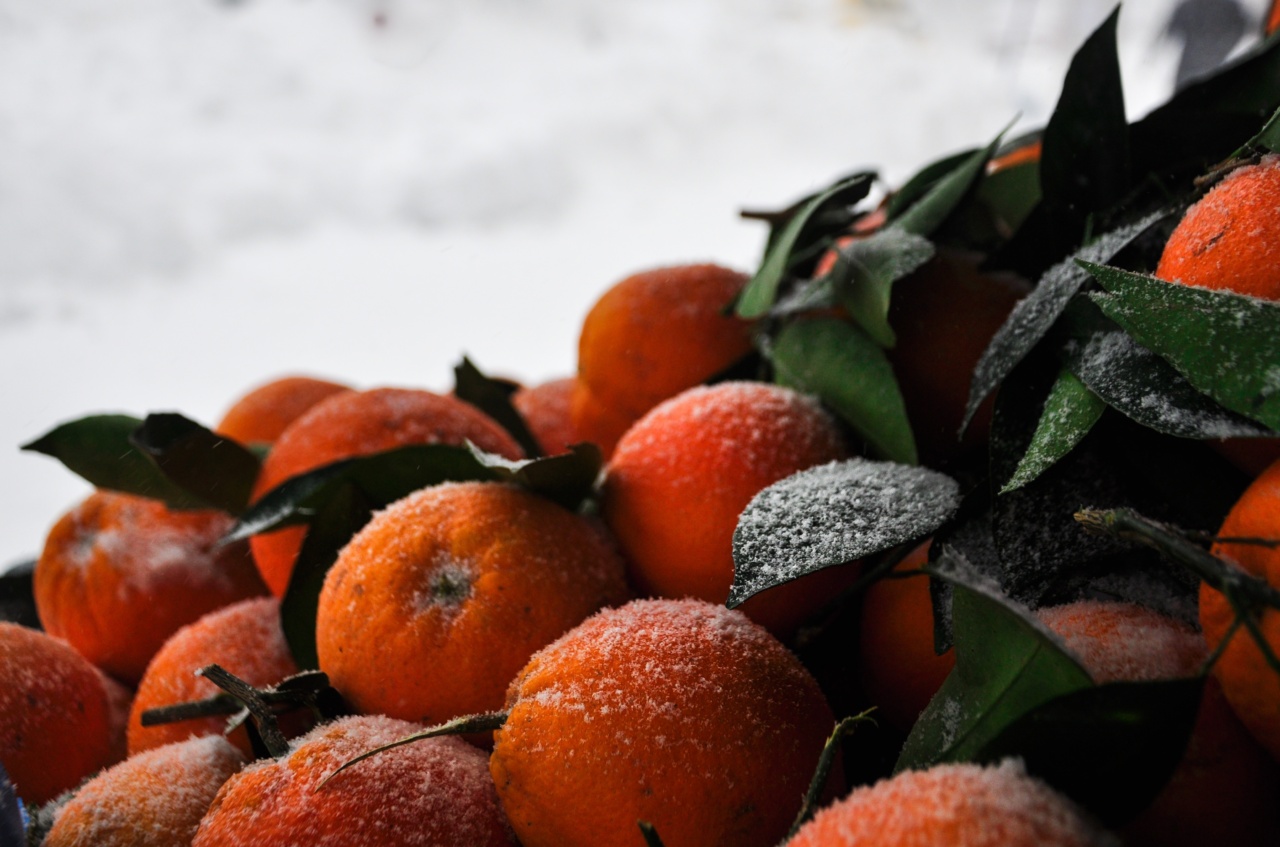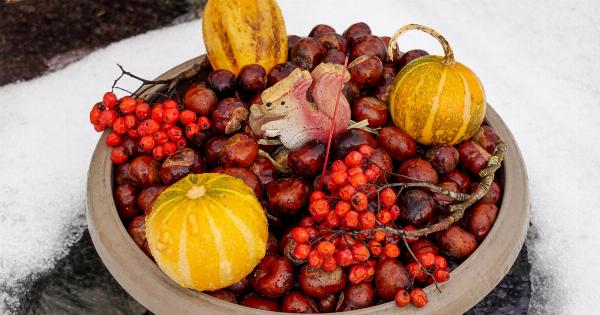Winter is a time when our bodies need an extra boost to stay healthy and fight off common ailments like cold and flu.
While it may be tempting to rely on processed foods and comfort meals, incorporating seasonal fruits into your diet can provide a wealth of essential vitamins, minerals, and antioxidants. In this article, we will explore the top ten fruits to help you stay healthy this winter.
1. Citrus Fruits
Citrus fruits like oranges, grapefruits, lemons, and clementines are powerhouses of vitamin C. This vitamin strengthens the immune system and protects against winter infections.
Regular consumption of citrus fruits can help reduce the duration and severity of cold symptoms. Moreover, their refreshing taste adds a burst of flavor to your meals and snacks.
2. Apples
An apple a day truly keeps the doctor away! Apples are rich in dietary fiber, which aids digestion and keeps you feeling fuller for longer. They are also packed with antioxidants and vitamins that support a healthy immune system.
Additionally, the natural sugars present in apples provide a quick energy boost, making them an ideal snack during the winter months.
3. Pomegranates
Pomegranates are a delicious winter fruit that is known for its high antioxidant content. These antioxidants combat oxidative stress in the body, reducing inflammation and lowering the risk of chronic diseases.
Pomegranates are also a rich source of vitamin C and dietary fiber. Enjoy them as a standalone snack, or add them to salads, yogurt, or smoothies for a refreshing twist.
4. Kiwi
Kiwis are small fruits that pack a powerful nutritional punch. They are loaded with vitamin C, vitamin K, and vitamin E, which are essential for maintaining a healthy immune system and combatting winter illnesses.
Kiwis are also high in fiber, aiding digestion and promoting a healthy gut. Whether eaten alone or added to fruit salads, kiwis are a perfect winter fruit to boost your overall well-being.
5. Cranberries
Cranberries are known for their association with Thanksgiving, but these tart berries shine throughout the winter season. They are an excellent source of antioxidants, particularly proanthocyanidins, which help prevent urinary tract infections.
Additionally, cranberries are rich in vitamin C, fiber, and vitamin E. Enjoy cranberries in the form of juice, dried fruits, or as a sauce to accompany your favorite winter dishes.
6. Grapes
Grapes come in various colors and are a great treat during the winter months. They are a rich source of antioxidants, especially resveratrol, which has been associated with numerous health benefits.
Grapes also contain vitamin C, vitamin K, and dietary fiber. Whether eaten on their own or added to salads, grapes provide a refreshing burst of flavor and contribute towards a healthy diet.
7. Pears
Pears are a sweet and juicy winter fruit that is rich in fiber, potassium, and vitamin C. With their high water content, pears help keep you hydrated during the colder months.
They also contain a substantial amount of antioxidants and flavonoids, which are known to reduce the risk of heart disease and certain cancers. Enjoy pears by themselves or use them as a natural sweetener in baked goods.
8. Persimmons
Persimmons are a unique winter fruit that can be enjoyed in various ways. They are an excellent source of vitamins A, C, and E, along with dietary fiber.
Persimmons also contain beneficial plant compounds like tannins, which have antioxidant and anti-inflammatory properties. Whether eaten raw, added to salads, or used in desserts, persimmons offer a delicious and nutritious addition to your winter diet.
9. Figs
Figs are a delightful winter fruit with a sweet and chewy texture. They are packed with essential nutrients, including potassium, calcium, magnesium, and vitamins A and K.
Figs are an excellent source of dietary fiber, promoting healthy digestion and preventing constipation. Whether eaten fresh or dried, figs are a natural and healthy way to satisfy your sweet cravings and enhance your overall well-being.
10. Blueberries
Blueberries might not be widely available during the winter season, but they are worth mentioning due to their exceptional health benefits.
These antioxidant-rich berries are known for their ability to protect against inflammation and boost brain health. Blueberries are also a great source of dietary fiber, keeping digestion on track. Incorporate frozen blueberries into your diet by adding them to smoothies, oatmeal or baked goods for a nutrient-packed winter treat.
Conclusion
Incorporating a variety of seasonal fruits into your diet can help you stay healthy and fortified during the winter months. The fruits mentioned above are not only flavorful but also packed with essential nutrients, vitamins, and antioxidants.
Experiment with different fruits, and enjoy their natural sweetness in various forms. Stay healthy this winter by embracing the power of these amazing fruits!.




























